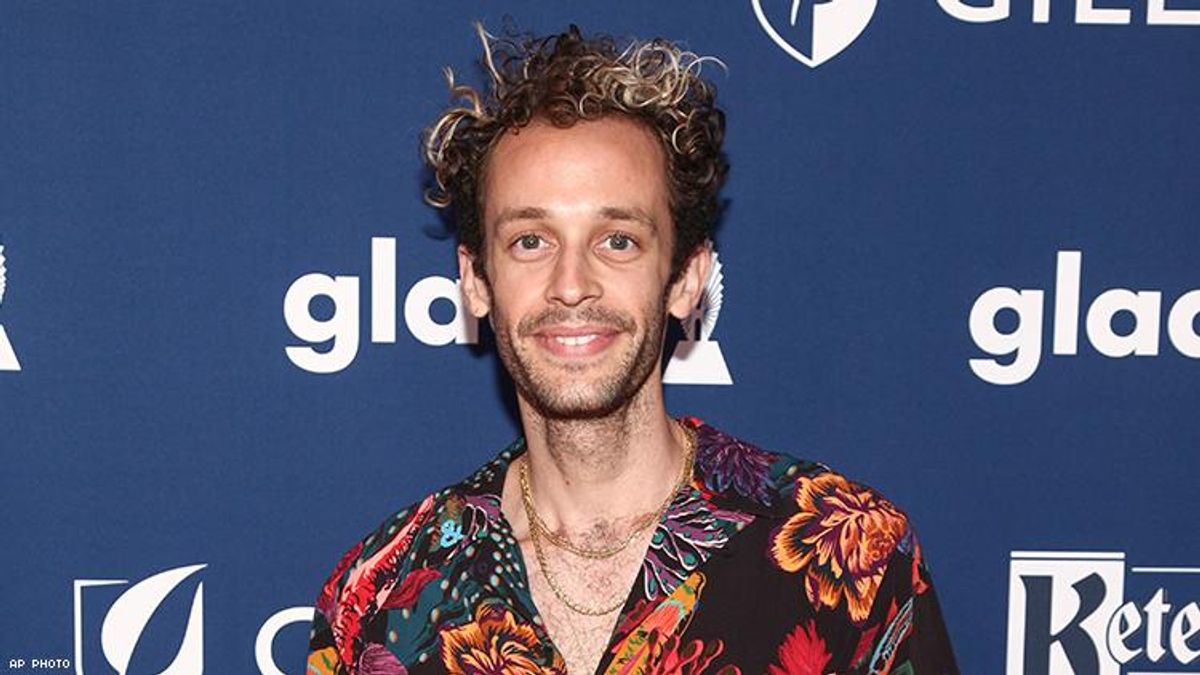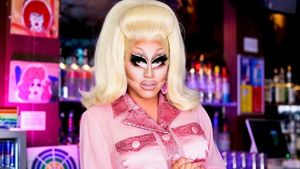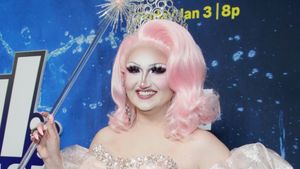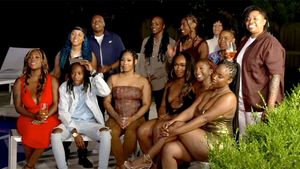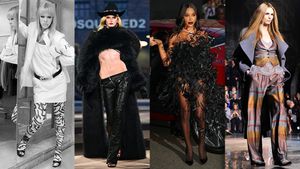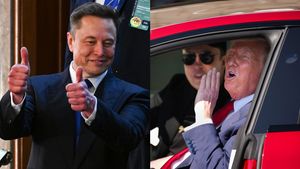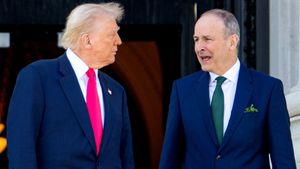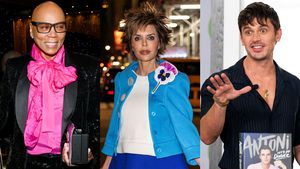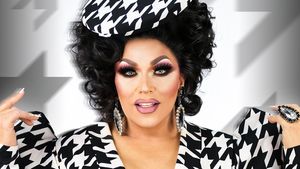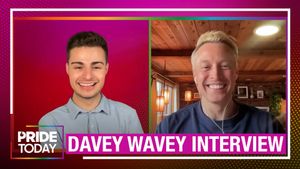Known for songs like "11 Blocks" and "The Village", Wrabel, the talented singer/songwriter, has an equally impressive career writing songs for other musicians. He's worked with Kesha, Ellie Goulding, Adam Lambert, Idina Menzel, and most recently, the Backstreet Boys. Wrabel wrote "Don't Go Breaking My Heart," the Backstreet Boys' first new release since 2013.
On this week's episode of LGBTQ&A, Wrabel talks about seeing more and more queer people working behind the scenes in the music industry, growing more comfortable writing songs that reference his sexuality, and why the tattoo Kesha gave him is so meaningful.
Read highlights from the interview here, or listen to the full podcast interview on the audio player below.
Subscribe to LGBTQ&A on iTunes, Spotify, Stitcher, or wherever you listen to podcasts.
The Advocate: You wrote the new Backstreet Boys song that recently came out, "Don't Go Breaking My Heart." It struck me because it's not gendered in any way. The lyric is, "I'm not that kind of person who can fall in and out of love with you." Was that intentional?
Wrabel: That's interesting. It wasn't. I put out a song called "Bloodstain." That was my first song with pronouns. I was so proud. I was all fired up. I was like, What have I been doing all my life? I've been living a lie. But previous to that, I hadn't put any.
The vast majority of your music doesn't include them and I also wondered if it was done to have a mass appeal.
I think at the beginning, I wasn't necessarily comfortable gendering it appropriately, but then I was like, If I'm writing a love song, it's a gay love song. Let's roll with it.
With songs you write about specific people like "11 Blocks," do you always tell the person when it's about them?
I'm cringing. No. With that song, I actually reached out to him before it came out and he basically said no. So then it just came out and I drew this map to house, which is now tattooed on my arm
Do you have a tattoo for every song?
No. That would be overwhelming, but a couple.
You have almost 30 tattoos. What's one that has the most meaning?
The first one is probably the most, this smiley face on my wrist. Kesha actually gave it to me the day before I went into treatment. I'm a raging alcoholic. I got this the day before I went in as my first tattoo. She did it with a needle. It's a stick and poke. I went over to her house and I might've gone from there right to rehab.
There are more out queer musicians than ever. Is there any kind of community between all of you?
Yeah, there totally is. I tend to exist just in my life in general, inside my apartment in a double-wide rocking chair. I don't really go to a lot of stuff or see that many people, but that being said, there's totally a community of us. I've been out here 10 years and in the last two years, I've felt that more than ever. I've just felt support from other artists, other songwriters.
Behind the scenes in the music industry, I think of that as being pretty heterosexual.
Yeah. I feel like that has shifted. Creative rooms weren't necessarily safe feeling before. Now you're going in and you feel safe because there's a bunch of homos in there. It's safe because we're here and we're collaborating with each other. It's really cool.
Have you ever felt pressure from the industry to tone down your queerness?
No. I've felt that pressure from myself, especially at the beginning when I signed my first record deal. I wasn't out yet, so I was a scared little baby.
How old were you then?
23? I have no sense of time. I remember I was on a flight with one of my managers and it was the day Sam Smith came out. I cried the whole flight. I remember being like, Woah. That's really cool.
It's easy to forget that he was one of the very, very first, at that level to come out.
An international pop star. Yeah.
Do you listen to Sam Smith and other pop singers to see what they're doing?
I've listened for just enjoyment. I don't really listen to a lot of music. I don't really listen to everything that comes out because it stresses me out so much.
What's stressful?
Just like, New Music Friday will come out and I'll think, I love this, I love this, and This is better than anything I'll ever do. Or I'm listening to somebody thinking, This is trash, I hate this. And I don't know. Whatever is in my brain...it can throw me into this weird headspace.
That goes to the point that you can't just be a good singer to make it, right? You can't just write a good song. How do you describe what that "it" factor is?
I'm still trying to figure that out. To me, this sounds so cliche, but it's honesty and authenticity. Everyone's perspective is unique to them. You see the world differently, you see a breakup differently, and you express it differently. How do I feel this? How do I see this? And if you're telling your own story, it's going to be unique because it's yours.
How do you communicate that authenticity if you're not writing your own music?
I don't know. I think, at the same time, there are different kinds of artists. If you're singing a song you haven't written, that's almost like a different kind of artist to me. I mean, there are greats that have told other people's stories.
Is songwriting fulfilling enough for you, or do definitely want to sing and make your own music?
I definitely also want to sing, but writing can be the best thing. My favorite thing, maybe even more than going in and writing for myself because I've become bitter and jaded, is writing with an artist that has a perspective and that has a story to tell. It's a really, really cool feeling and experience.
When can we expect your full album to come out?
I'm working on it. In the new year. I'm very, very, very, very excited. It's been literally 10 years in the making. It's hard to put together and pick the songs. The newest song, if I'm being honest, probably hasn't been written yet and the oldest song is about eight years old, so that's cool.
This interview has been edited and condensed. Subscribe and listen to the full podcast interview on LGBTQ&A.
